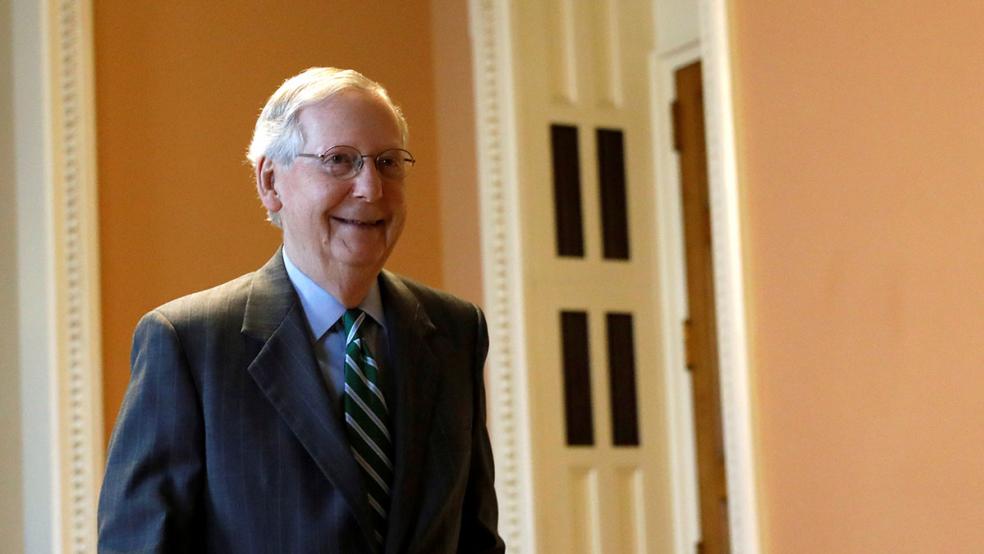The Senate version of Republicans’ plan to get rid of the Affordable Care Act actually incorporates a whole lot of the law it’s supposedly meant to repeal, but there is one element missing that could present a real problem for insurers if it were to become law: The lack of a forceful incentive for healthy people to purchase insurance coverage.
That’s an important counterweight to one of the most popular elements of the ACA, and one that the GOP was reluctant to do away with: its prohibition on insurance companies denying people coverage because of pre-existing conditions, and a requirement that they be charged the same amount as healthy people.
Related: Why Some GOP Senators Are Balking at Their New Health Care Plan
Because that virtually guaranteed a stream of expensive patients looking to get previously unavailable coverage, there was the danger of the insurance firms being deluged with high-cost policyholders while healthier patients, knowing that they would be guaranteed coverage if they ever got sick, stayed away.
The answer was a coverage mandate, requiring everyone, regardless of health status, to have an insurance policy.
The drafters of the ACA gave the mandate some teeth by imposing a penalty, enforced by the Internal Revenue Service, on people who could not demonstrate that they had coverage. However, many experts complained he penalty was too small and didn’t apply sufficient economic pressure to get a high percentage of healthy young people into the insurance market. But at least it was an attempt.
When it drafted the American Health Care Act, the House of Representatives did away with the coverage mandate. However, lawmakers bowed to the necessity of somehow compelling healthier Americans to buy coverage that they were less likely to need than their less healthy neighbors.
Related: Obama Rips ‘Fundamental Meanness’ of the GOP Health Plan
The House solution was allowing insurers to add a significant penalty to premiums -- 30 percent -- for a full year if a person seeking coverage couldn’t demonstrate that they had been insured already within the previous 63 days.
Like the original ACA penalties, the House version was criticized for being insufficiently forceful. A healthy person might easily decide that several years of no payments was worth the risk of a 30 percent surcharge for 12 months if they wound up needing coverage.
But again, at least it attempted to address the problem.
Unlike either the ACA or the AHCA, the proposal put forward by the Senate on Thursday doesn’t appear to address the issue at all.
Speaking with reporters on a conference call Thursday, Senate staff suggested that what they view as improvements to the subsidy system that is supposed to help lower-income Americans afford coverage is incentive enough to convince healthy people to enter the market.
“Everybody wants insurance,” one argued.
Related: Here Are Six Key Differences Between the House and Senate Health Care Plans
But Avik Roy, president of the Foundation for Research on Equal Opportunity and a prominent voice in conservative health policy circles, seemed puzzled by the oversight, identifying the lack of a continuous coverage provision or other barrier against free-riding, such as a waiting period for coverage, as a problem with the bill that is “important to fix.”
By Friday morning, there were various competing theories about why the Senate had left out the continuous coverage requirement. At one end was the assumption that it was a simple oversight in a bill that received little scrutiny outside the small group of senators and staffers who drafted it. At the other was the belief that Senate Majority Leader Mitch McConnell is playing three-dimensional chess, in service of some hidden goal of his own.
In any event, the lack of some sort of incentive system to compel the healthy to purchase insurance on the individual market is likely to create problems for the bill when its impact on coverage rates and individual market premiums are calculated.
Whatever the reason for leaving one out of the draft released Thursday, it’s very difficult to see a bill successfully passing both Houses of Congress without one.





